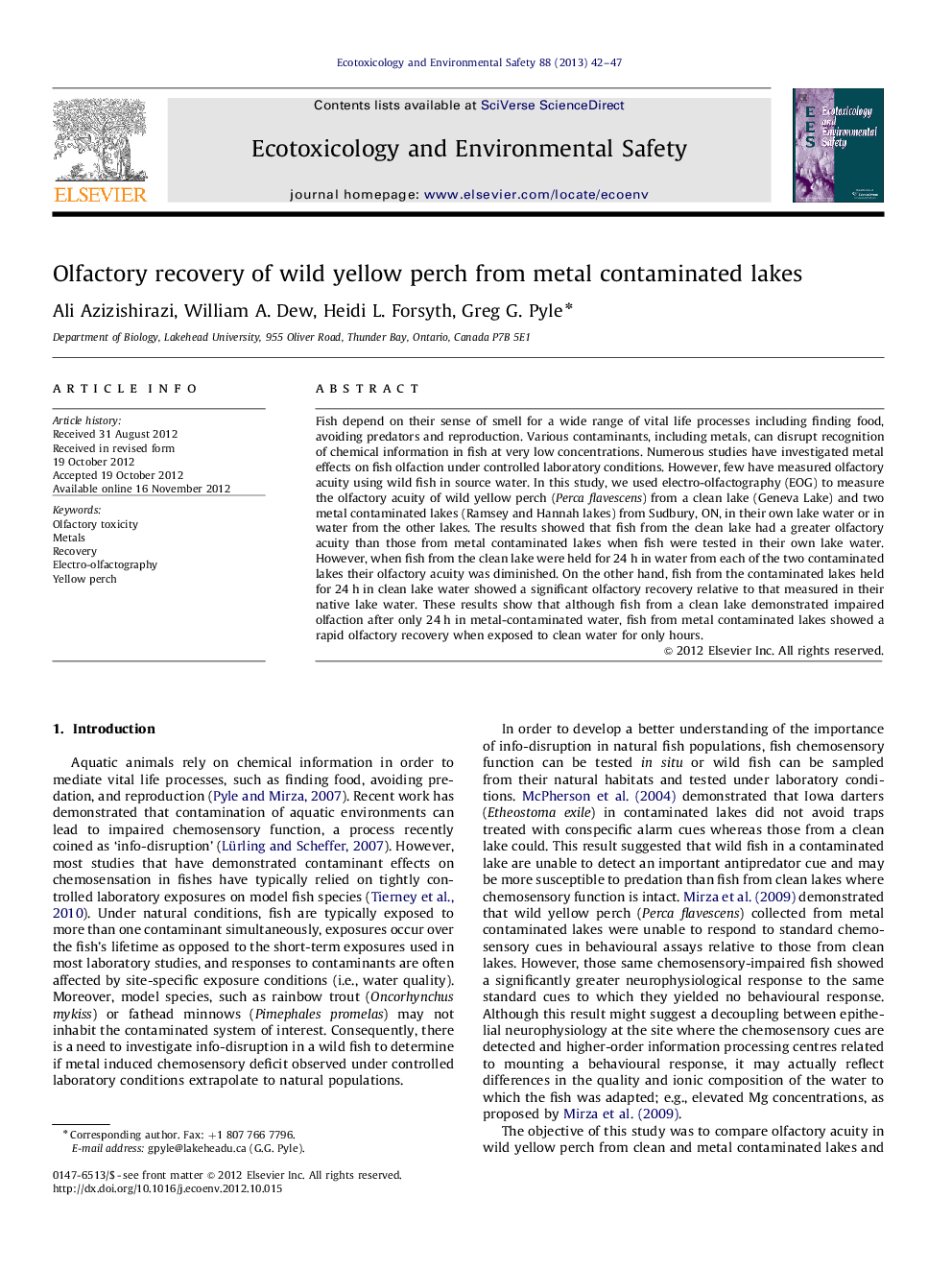| Article ID | Journal | Published Year | Pages | File Type |
|---|---|---|---|---|
| 4420777 | Ecotoxicology and Environmental Safety | 2013 | 6 Pages |
Fish depend on their sense of smell for a wide range of vital life processes including finding food, avoiding predators and reproduction. Various contaminants, including metals, can disrupt recognition of chemical information in fish at very low concentrations. Numerous studies have investigated metal effects on fish olfaction under controlled laboratory conditions. However, few have measured olfactory acuity using wild fish in source water. In this study, we used electro-olfactography (EOG) to measure the olfactory acuity of wild yellow perch (Perca flavescens) from a clean lake (Geneva Lake) and two metal contaminated lakes (Ramsey and Hannah lakes) from Sudbury, ON, in their own lake water or in water from the other lakes. The results showed that fish from the clean lake had a greater olfactory acuity than those from metal contaminated lakes when fish were tested in their own lake water. However, when fish from the clean lake were held for 24 h in water from each of the two contaminated lakes their olfactory acuity was diminished. On the other hand, fish from the contaminated lakes held for 24 h in clean lake water showed a significant olfactory recovery relative to that measured in their native lake water. These results show that although fish from a clean lake demonstrated impaired olfaction after only 24 h in metal-contaminated water, fish from metal contaminated lakes showed a rapid olfactory recovery when exposed to clean water for only hours.
Graphical abstractImpaired olfaction of fish from metal contaminated lakes recovered after being held for 24 h in clean water.Figure optionsDownload full-size imageDownload as PowerPoint slideHighlights► Yellow perch in metal contaminated lakes have impaired sense of smell. ► Holding yellow perch from a clean lake in metal contaminated water causes olfactory impairment. ► Fish from contaminated lakes with impaired olfaction can recover quickly in clean water. ► When measuring the olfactory response of fish, it is essential to use the source water of the fish.
